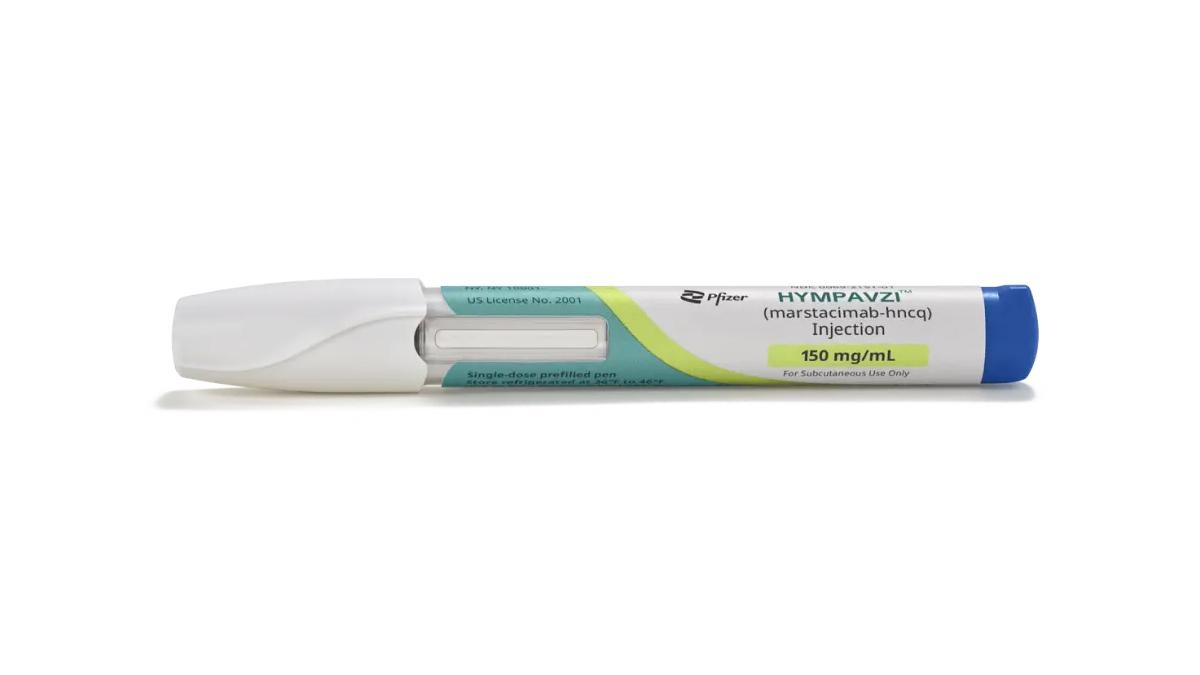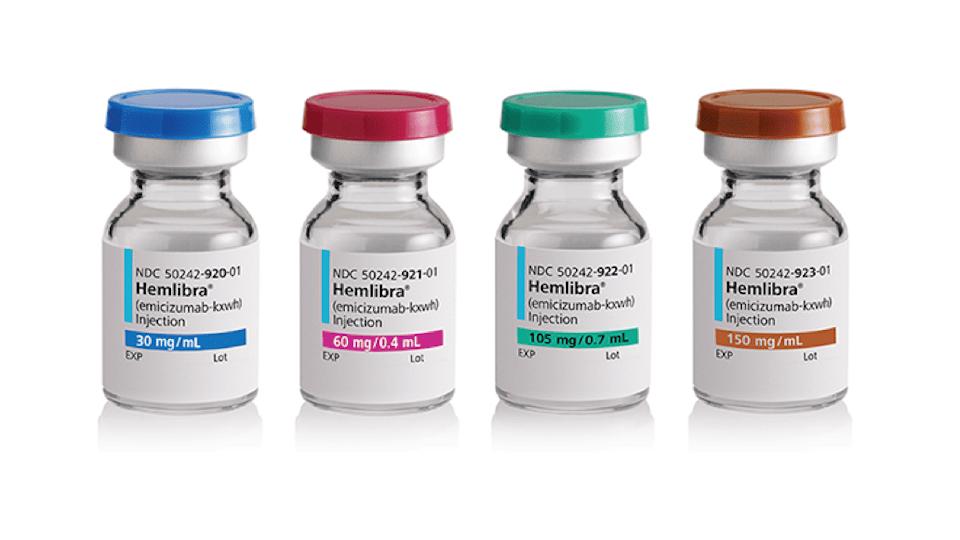Pfizer bags EU okay for haemophilia drug Hympavzi

Pfizer's Hympavzi has become the first once-weekly subcutaneous treatment for people living with severe haemophilia B in the EU that can be delivered via an autoinjector device at home.
The once-weekly anti-TFPI antibody has been cleared by the European Commission for adults and adolescents aged 123 and over with severe haemophilia A or B, without inhibitors, becoming the first drug in its class in Europe a few weeks after it got the green light in the US.
It is Pfizer's second haemophilia product approval this year, coming after its one-shot haemophilia B gene therapy Durveqtix/Beqvez (fidanacogene elaparvovec) was cleared in Europe in the summer, with another experimental gene therapy for haemophilia A (giroctocogene fitelparvovec) in phase 3 testing.
"There is a considerable treatment burden associated with the standard-of-care options for haemophilia A and B, including time-consuming preparation and administration of infusions and injections potentially causing missed doses and an increased risk of bleeding," said Dr Laurent Frenzel, a haemophilia specialist at the Necker-Enfants Malades Hospital in Paris.
"Hympavzi is a significant advancement for eligible patients in that it may provide bleed prevention as well as once-weekly subcutaneous administration via a pre-filled pen," he added.
The drug can also be given as a flat dose – i.e., not determined by weight – which simplifies administration.
The approval is based on the phase 3 BASIS study, which showed that treatment with Hympavzi reduced the annualised bleeding rate (ABR) for treated bleeds by 35% over a 12-month treatment period compared to routine injections of recombinant clotting factors.
The most commonly reported side effects, which affected less than 3% of the patients in the study, were injection site reactions, headache and itching.
The drug will compete in haemophilia A with Roche’s hugely successful Hemlibra (emicizumab), which offers less frequent dosing, is approved for patients with and without inhibitors, and is approaching $5 billion in annual sales.
Another rival in this type of haemophilia is Sanofi’s long-acting Factor VIII replacement therapy Altuviiio (efanesoctocog alfa), which also offers once-weekly dosing.
Given that competition, analysts think that haemophilia B is likely to be the greatest opportunity for Hympavzi, as it will offer an advance over standard clotting factor replacement therapies, which have to be administered multiple times a week.
Hympavzi's closest counterpart in the TFPI category is Novo Nordisk's concizumab, which was turned down by the FDA last year due to manufacturing issues. It has, however, been launched in Canada and some other markets – including Japan, Australia, and Switzerland – as Alhemo, and last month was recommended for EU approval by the EMA's human medicines committee.
The two drugs are directed at different indications, however, as Alhemo is indicated for use in haemophilia A and B patients with inhibitors.












